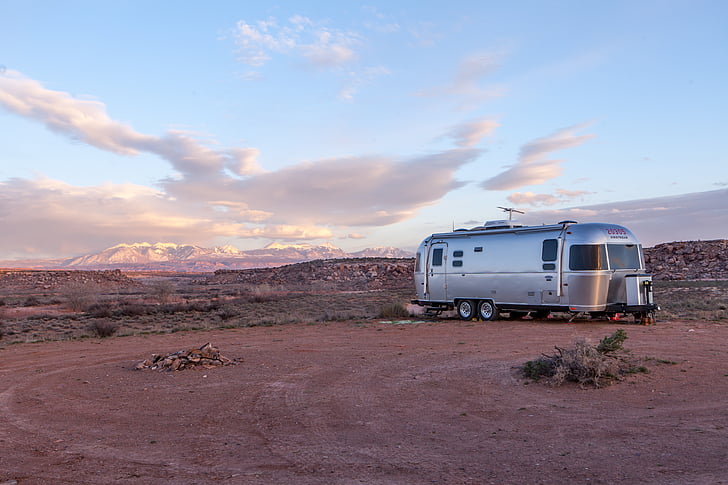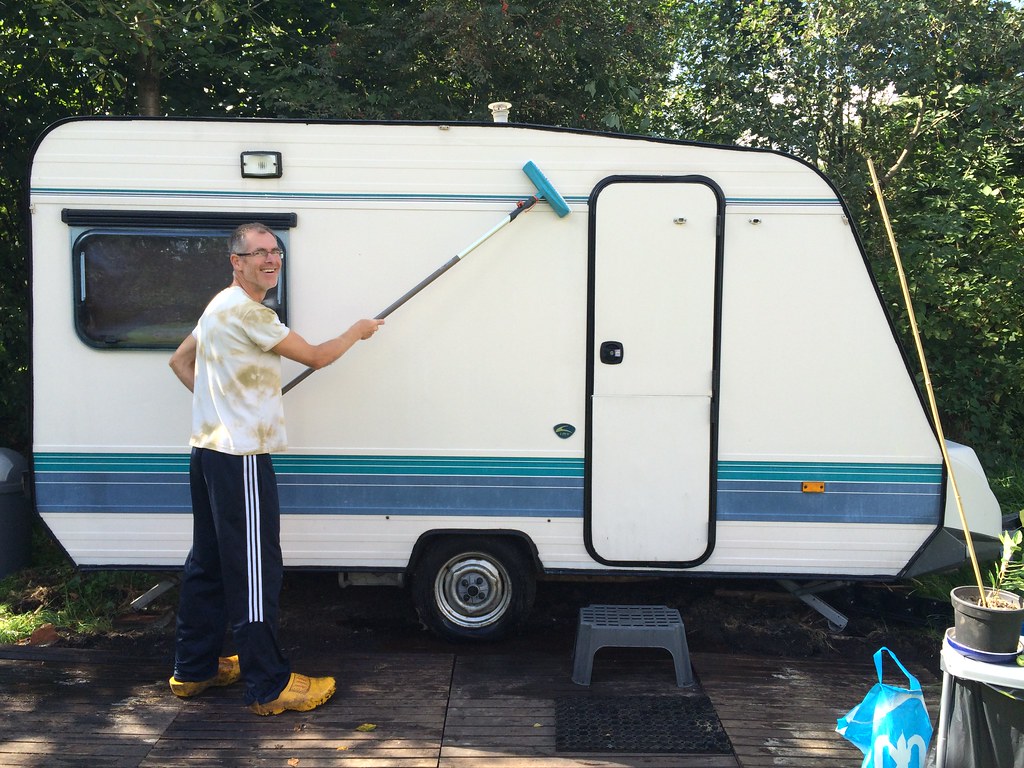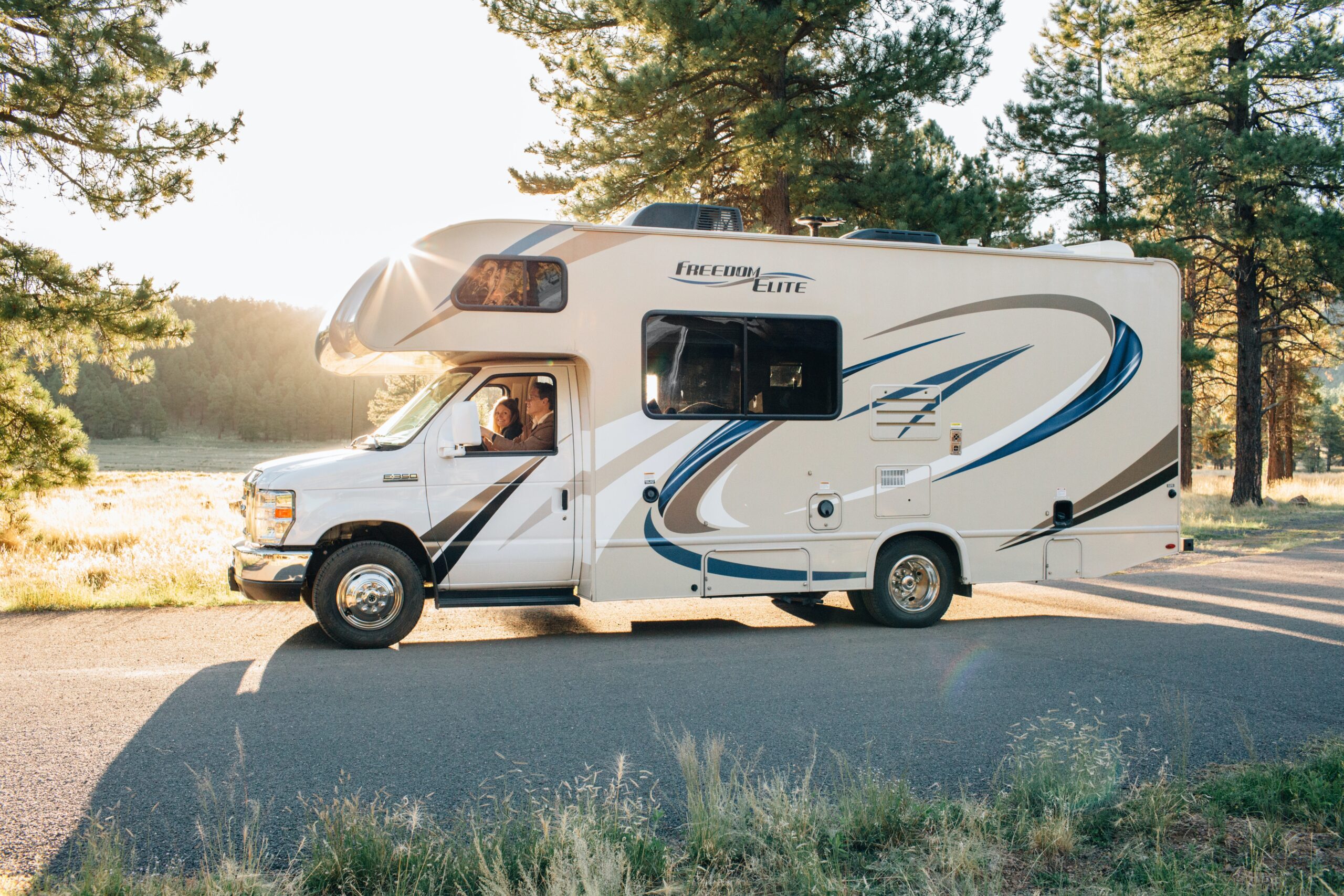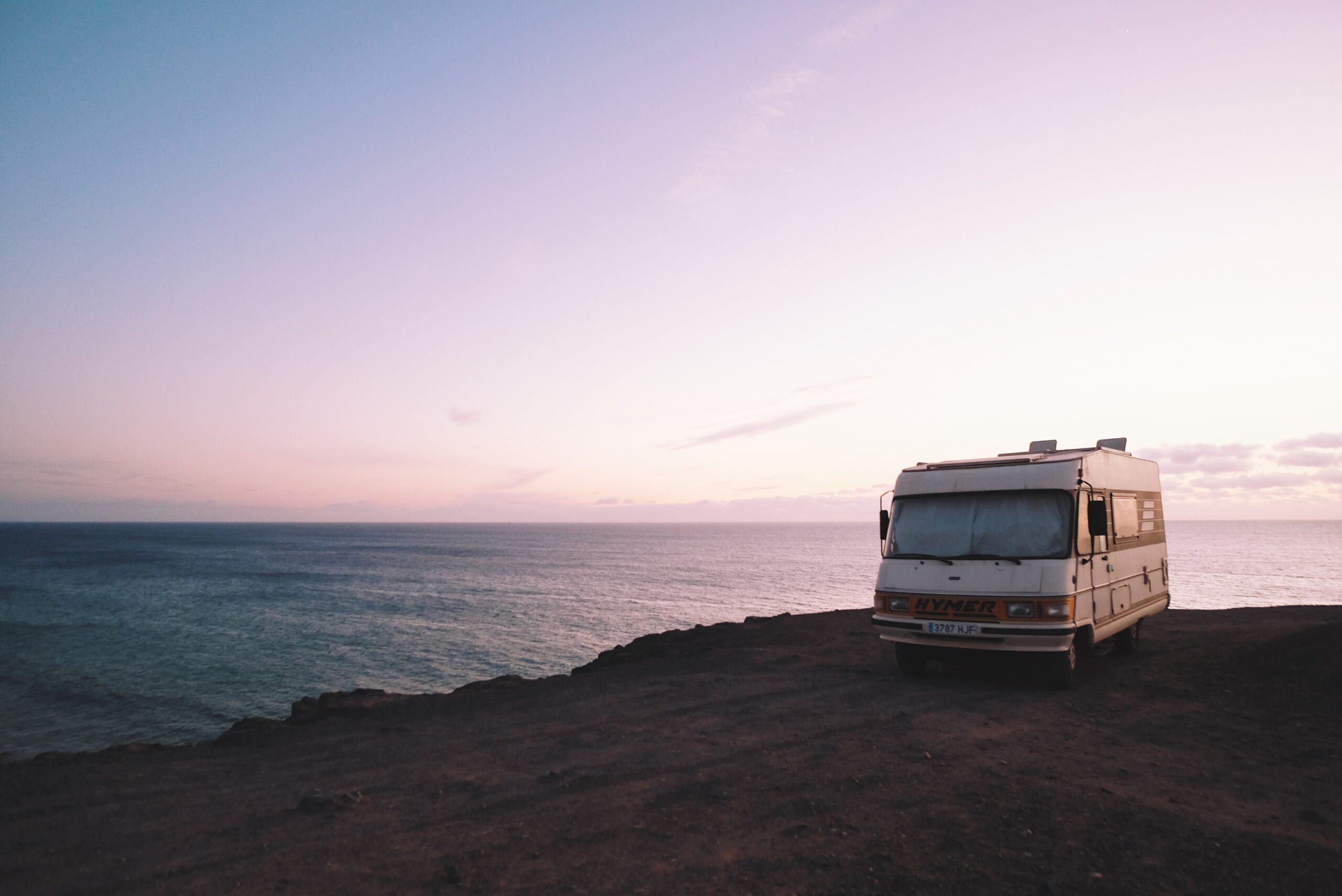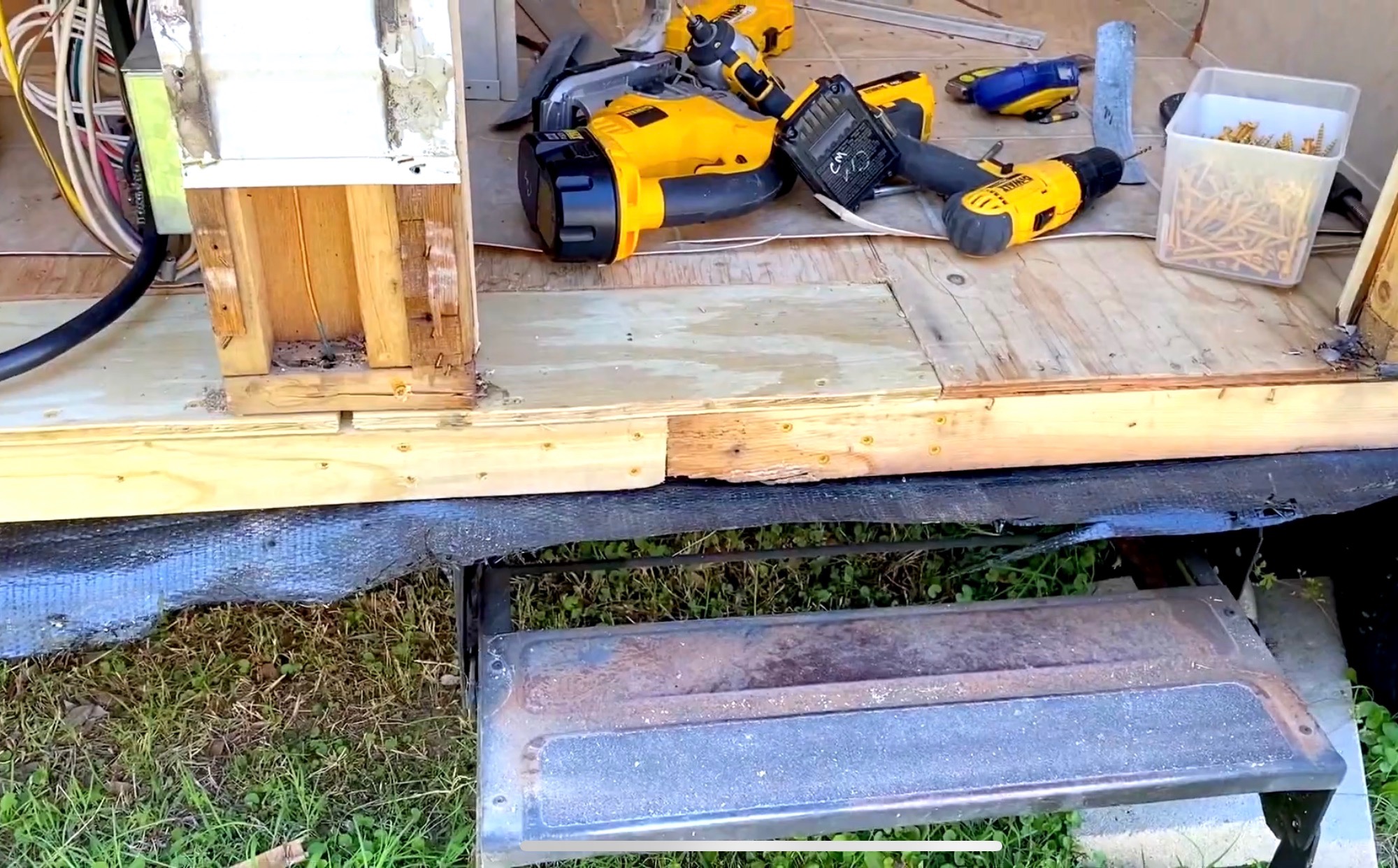Washing an RV is a topic that seems pretty straightforward, but there are a few things you should know. After all, your RV is made with siding that is not like your car, designed to be washed and waxed.
Even some car finishes are now designed to not be waxed at all. Your RV exterior also includes ducts and vents that are necessary for your stove, refrigerator, toilet, heater, and other things to be properly vented.
How should you wash those and is there maintenance required for those particular Items?
Why should I wash my RV?
Just like any other vehicle, a clean RV actually has less wind resistance during travel. It may not be a drastic difference, but it really can help, even if slightly.
Keeping your RV clean is important for general maintenance as well. Trim can trap debris and dirt that can begin to mildew over time.
The reason for this is all new RVs come from the manufacturer with a special gel-coating on them. This is designed to help keep them protected.
When you don’t wash your RV, it becomes a trap for dirt to adhere to. In time, dirt will cause this protective coating to wear and your RV will begin to look road worn and beaten up.
Washing regularly, and waxing at least once per year, will keep the coating in better condition, preventing wear and tear. As a bonus, dried bugs from highway miles will wash off far easier when they don’t have months of grime to stick to.
How often should I wash my RV?
A good rule of thumb is you should wash your RV each month in the summer. You should probably cover it in the winter months to keep it protected and wash it after each road trip.
Just remember that the cleaner you keep your RV, the better it will look, and the longer it will last. It’s an investment, right? Keeping it clean will prevent the sort of wear and tear on the exterior that lowers resale value.
At the absolute bare minimum, wash and wax your RV once per year, preferably after the end of camping season and prior to winter storage.
What kind of cleaner should I use?
Waterless RV washing products are really great because they allow you to wash your RV wherever you are. You can also trust this to not strip the gel coat on your rig.
Many campgrounds don’t allow washing at the park. It is a huge use of water for them, which stresses their well if they’re on one. If they are on city water, then they’ve got a huge bill to pay and spaces in most campgrounds include your water use, so they don’t allow washing.
Waterless products won’t trigger their angst and allow you to have a great deal of flexibility to keep your rig clean, especially if you are a full-time RVer.
If you have access to water, you can use any wash designed for RVs, marine use, or vehicles. This is a safe bet when it comes to maintaining your paint and gel coat.
Can I use Dawn to wash my RV?
Using Dawn dish soap should be avoided if possible. You’ve possibly cleaned a camper in the past with Dawn dish soap. Don’t let yourself dwell on this reality, but you probably shouldn’t in the future.
Dish soaps are very harsh and remember that gel coating that was put on your camper to protect it? That dish soap will strip it off and leave you with no protection at all.
In addition to the gel coat, it can also strip the wax, which is one of the biggest downsides.
With all that being said, I’ve never heard of an RV being ruined by using dish soap, so there’s that. All I’m saying is, when you invest a lot of money buying an RV it may not be worth saving a buck or two using dish soap over a designated cleaner.
Baby Shampoo and vinegar RV wash
Many RVers are using a combination of baby shampoo (because it is extremely mild) and vinegar. Vinegar is a natural cleaning agent and the baby shampoo is so mild that it doesn’t even leave a film after it is rinsed. This means that there is nothing there to trap dirt against that valuable gel coat.
Can I pressure wash my RV?
Please, don’t use a pressure washer on your RV unless it is a lower PSI washer. For starters, we already mentioned that you have vents behind your appliances. Using a high powered pressure washer can force water into those vents, which is not recommended.
The power washer can also damage trim molding and sealants like silicone. That said, you can use the right pressure washer for the job.
How to wash an RV with a pressure washer
You must use a pressure washer that is under 1300 PSI to ensure that you don’t do any long term damage to the exterior of your camper. This can also be managed by the distance you maintain from your rig while you are washing it.
You may be tempted to pressure wash your roof. They definitely can be problem areas if you are parked under a tree. Sometimes the air conditioner can also create water that will cause some mold to try to develop around them also.
Only use a very low-pressure washer that operates at under 1300 PSI in order to not tear molding and cause damage to the roof. It’s very easy to blast sealant away and leave your RV exposed to water damage without even knowing until the leak becomes apparent inside.
Can I wash my RV at a truck wash?
Theoretically, yes you can, but you shouldn’t. Why? The automated brushes can scratch your finish and strip away your gel coating, scratch your siding, and even damage corner molding and trim. If you’ve got awnings (which 99% of RVs do) you can also risk damage to them as well.
The washes that are “touch-free” use high pressure to do the work. The same issues we discussed related to pressure washers apply here as well. It’s best for you to be in control of water pressure when it’s being used to clean your rig.
Even washing your RV with rough brushes and microfiber towels is not recommended because they can strip your finish and leave tiny scratches that dull the surface.
This can leave it porous, attracting mildew, and causing staining. In time, your RV will look years older than it is. Avoid this type of harsh cleaning.
How much does it cost to wash an RV?
If you have your rig washed and detailed by a professional, the results can be amazing. Another eye-opener can be the cost. If we are just looking at a wash and wax, you are in the hundreds.
Keep in mind, the cost depends on the length of your RV, but the average price is between $150-$200. If you have a 40-foot fifth wheel, it can definitely cost you a great deal more than that.
Mobile RV washing businesses can come onsite and take care of your RV exterior, leaving it shiny and protected.
If you’d like the interior detailed and thoroughly cleaned, you can easily double your cost of a good deep cleaning that includes the interior and exterior.
Expect to spend somewhere in the neighborhood of $350 to $400 for complete and total detail of an RV that includes interior cleaning.
How to wash an RV
Now that we’ve discussed all the peripheral topics, let’s get down to business. We’ve decided we are ready to wash our RV, but what do we do?
- Park in the shade and out of direct sunlight
- Wet the entire RV to remove loose debris and to soften tougher dirt and grime
- Use a suitable cleaner/water mixture and was the RV from top to bottom using a soft brush, mitt, or sponge
- Completely rinse
- Wipe dry for best results
- Clean wheels and tires
- Wax if needed
Conclusion
With the knowledge you have now, after reading all of the above points, when it comes to keeping your RV clean, treat it as an investment. Treat the exterior of your camper with kid gloves and it will last for years and still look brand new.
When you want to sell your rig, or trade it on a new one, you’ll find you get far more trade-in value for your RV, and yours will be the one that gets the asking price when you are selling.
Another key point of doing regular washing is that it forces you to pay closer attention to your surface areas and may help you see potential issues that you might have otherwise completely ignored.
Finding and repairing things quickly is another way of guaranteeing that your investment will stay like new for many years.

